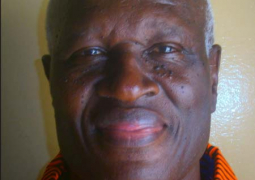(Of Muslim Schools of Thought)
Also in our time Fukuyama has come to offer Eltimus as the basis for his words which he has named "the end of history." He holds that Eltimus in its best forms is fulfilled within liberal democracy; therefore, according to his claim, democratic liberalism marks the end of history {see Fukuyama, End of History}. We do not intend to discuss this claim; rather, we intend to clarify the significance of dignity in the civilizational movement. Thus dignity is the manifestation of life, and a dignified society is one whose organs are all united, to an extent that should any organ feel pain there would be no rest, but alertness and fever, for the other organ of the body:
"Once the age pains an organ,
The other ones shall have no rest."
A humiliated society is identical to a dead and motionless one between whose parts there is no organic unity, and toward the entanglement of an organ, the others show no reaction.
Establishment of the spirit of dignity within mankind begins with the mother and the family, and after that the next role is played by the society, its influential devices, and its general culture. The first issue regarding dignity is to guide people toward true dignity, so that the Lord says, "Whoever seeks honor [should know that] honor entirely belongs to Allah." {XXXV, 10} And the nation's avoidance is from false dignities. The Lords says, "They seeks honor with them." {IV, 139}
Another issue is to keep the society away from matters which cause it to feel humiliated and become weak and feeble. Therefore we must avoid any kind of speech that paves the way for agitation in the sprit of honoring the identity, personality, culture, legacy, and history. We must move toward anything that causes the fortification of feeling human nobleness and its great responsibility and splendor in such existence.
Most regretfully, a great deal of our propagandistic speeches cause the reinforcement of the sprit of humility, defeat, hopelessness, and weakness in the hearts; therefore, we must strengthen the spirit of dignity, nobleness, personality, honoring the identity, and depending upon the Islamic nation in our propaganda, educational programs, and familial training. Such matter would be an essential and vital preliminary step in recommencing our arising and our civilizational movement.
Islamic Mysticism
Within my word regarding the Barmakids meeting which had caused various currents to gather around, I referred to "Love," that it can unity the hearts, take man's outlook to lofty horizons, and grant abundance and purity to human life.
In the mystical school, such love has a special meaning which flourished through Ibn al-Arabi and was continued by such great mystics on the stage of Islamic civilization as Mawlana Jalal al-Din Rumi, Attar, Hafez, and Sa'di Shirazi. This school features a great human message which, if presented well, can gather all mankind around itself.
Such a message has also managed to protect the dignity of the Islamic nation which for centuries had been exposed to elements of humility from within and outside; therefore, reviving this school and presenting it through the contemporary language can make our message universal. Also, we can train our children on the basis of true friendship, true beauty, and true perfection-causing movement. Such an act will initiate our civilizational movement. It is evident that reviving such a school is in need of the establishment of a new cooperation on the contemporary level between Arabic and Persian literature and a new cultural encounter between Iranians and Arabians. Now we shall speak a little concerning the characteristics of this school:
Through a methodical outlook it must be said that man is the sole existent on earth that has a great tendency to make changes in his life, and man's advantages over other existents are summarized in these tendencies. They guide man to move toward the fulfillment of the plans within him. Such movement which considers a specific goal is identical to the concept of "worship" in religious language. Religion is the plan for this movement, and "God" is its exalted manifestation. When speaking about the types of worship, the texts of the Holy Quran emphasize this concept: "I do not worship what you worship" {109:2}, and also the plurality of the types of religion: "To you your religion, and to me my religion" {109:6}, and the plurality of deities: "There is no god except Allah."
Religion seeks to choose the Truth and the peerless God from amongst gods. "Certainly we raised an apostle in every nation {to preach:} 'worship Allah, and keep away from the Rebel" {16:36} and to invite to a religion which is compatible with Divine nature: "the origination of Allah according to which he originated mankind {there is no altering Allah's creation; that is the upright religion}." {30:30}
It has asked man to move toward truth, and mirage, in his plan of actions: "As for the faithless, their works are like a mirage in a plan, which the thirsty man supposes to be there he finds Allah." {24:39}
Thus, the true divine religion initially sets in motion such perfection-causing tendencies from within man, relying on its lofty aspects: "Indeed I am going to set a viceroy on thee earth" {2:30}; "Certainly we have honored the children of Adam" {17:70}; "So we breaking into are our spirit." {66:12}
It has obliged him to move within himself and in its outward environment in order to free himself from any kind of obstacle in the way of fulfilling his desires. It invites him to the faith, piety, and freedom from inward miserliness, and attachment to this-worldly possessions and goods; all these are incentives to make a movement in order to break free from inward bottlenecks, which is the major jihad and outward impediments such as the devils, insolents, pharaohs, etc., which is considered as the minor jihad. It also invites him to an endless perfection-causing movement in none of whose stage would there be a stop? That is to say, it invites him to move toward God.
Thus, movement or traveling is the essence of religion, and mysticism is but a narrator of the nature of religion. Also, this locomotion or movement is not spatial, as we pointed out. Rather, it is a natural movement in the path of embracing Divine ethics such as innovativeness, creation, and creativity.
It should be reminded that "mysticism" is the popular terminology practiced in Iran instead of Sufism. The word "Sufism" has undergone historical consequences caused by impacts that have nothing to do with our Islamic civilization.
The major pivots of mysticism are as follows:
Reliance upon the position of "man" in the universe, and that is something which grows the spirit of dignity and nobleness within mankind and brings man to a better comprehension of his mission on earth, which is innovation and creativity.
Man is an existent who has acquired nobleness from its creator, and his nobleness is firm regardless of his religion and belief. In this regard, Ibn al-Arabi refers to the Prophet's character in his act of rising to pay homage and respect to a Jew's corpse, because of his being a :human?" which he says, "Don't you see the prophet rising for a Jew's copse?" It was said to the prophet that the corpse belongs to a Jewish person The Prophet said, "is he not a soul?"
Thus, what other incentive was there for the Prophet to rise in order to pay respect and homage to the man's nobleness and position? What could it be but nobleness which is the breathing of Divine spirit into him? This soul comes from the same divine, spiritual, and pure world of nobleness. >>> to be continued.




